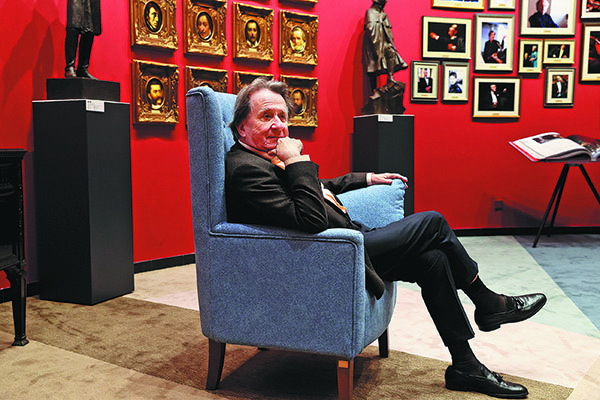

As a teenager, Buchbinder gave a recital tour in North and South America and, in 1966, he won a special prize at the second Van Cliburn International Piano Competition. In the 1970s, he received international acclaim for his recordings of Joseph Haydn's complete piano sonatas and other keyboard works. His reputation as an artist of the utmost integrity and discernment was soon enhanced with the release of the first of three complete recordings of Beethoven's piano sonatas.
"After the first recording of the piano sonatas, I didn't know if I should record them again. A friend of mine said to me: 'You should record them again, because you are a pianist with freedom of expression'," Buchbinder says.
"My life is a life for music. Beethoven has been a big part of it," he says, adding that his repertories also include works by many other composers, such as Wolfgang Mozart, Franz Schubert and Johannes Brahms.
Marking Buchbinder's 75th birthday in December 2021, Deutsche Grammophon presented the pianist's complete recording of Beethoven's 32 piano sonatas and five piano concertos.
In 2014, at the Salzburg Festival in Austria, Buchbinder became the first pianist to play all of Beethoven's piano sonatas at a single event, which was recorded live.
"I never listen to my past recordings because music always changes. Each time, I play it differently," says the pianist.
Buchbinder is not only a great pianist, but also attaches great importance to researching source material. His private collection of sheet music includes 39 different editions of Beethoven's complete piano sonatas and an extensive archive of first printings, original editions and copies of the signature piano parts of both piano concertos by Brahms.
"I always tell my students to read books about the composers. For Beethoven, I let them read the composer's earliest will," says the pianist, referring to the "Heiligenstadt Testament" written in 1802, where Beethoven, depressed and unable to hide his increasing infirmity, revealed his deafness and laid bare his soul.